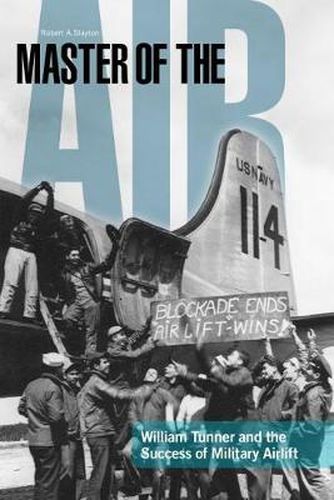Readings Newsletter
Become a Readings Member to make your shopping experience even easier.
Sign in or sign up for free!
You’re not far away from qualifying for FREE standard shipping within Australia
You’ve qualified for FREE standard shipping within Australia
The cart is loading…






In 1948, just as the Cold War was settling into the form it would maintain for nearly half a century, major antagonists the United States and Russia began maneuvering into a series of dangerously hostile encounters. Trouble had broken out in Poland and Czechoslovakia, but it was in Germany, which had been at the heart of World Wars One and Two, that the first potentially explosive confrontation developed. The USSR, which had suffered more at Germany’s hands than the rest of the Allies combined, may have viewed developments there with heightened fear and irritability. When the western Allies moved to consolidate their areas of control in occupied Germany, the USSR responded by cutting off land access to West Berlin, holding over two million residents of that city hostage in an aggressive act of brinkmanship. Into this difficult situation the Americans placed General William Henry Tunner. He was given a task that seemed doomed to failure - to supply a major city by air with everything it needed to survive from food to a winter’s supply of coal - and made it a brilliant success, astonishing the world in a major public relations defeat for the Soviets, and demonstrating the unexpected capacity of air fleets in a postwar world.
$9.00 standard shipping within Australia
FREE standard shipping within Australia for orders over $100.00
Express & International shipping calculated at checkout
In 1948, just as the Cold War was settling into the form it would maintain for nearly half a century, major antagonists the United States and Russia began maneuvering into a series of dangerously hostile encounters. Trouble had broken out in Poland and Czechoslovakia, but it was in Germany, which had been at the heart of World Wars One and Two, that the first potentially explosive confrontation developed. The USSR, which had suffered more at Germany’s hands than the rest of the Allies combined, may have viewed developments there with heightened fear and irritability. When the western Allies moved to consolidate their areas of control in occupied Germany, the USSR responded by cutting off land access to West Berlin, holding over two million residents of that city hostage in an aggressive act of brinkmanship. Into this difficult situation the Americans placed General William Henry Tunner. He was given a task that seemed doomed to failure - to supply a major city by air with everything it needed to survive from food to a winter’s supply of coal - and made it a brilliant success, astonishing the world in a major public relations defeat for the Soviets, and demonstrating the unexpected capacity of air fleets in a postwar world.